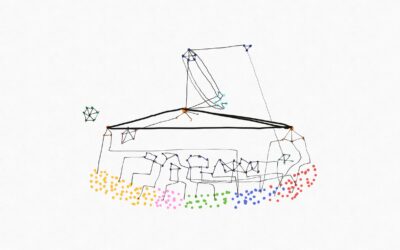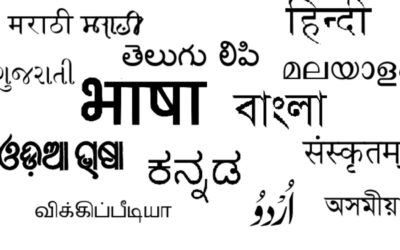I implemented a newly designed financial literacy game with the community. The details of which will be shared in a later blog. This game is followed by a debriefing session on how you need to protect, grow and diversify wealth. I take a deep breath and launch:
Tombacco aur daru sab faltu ke kharche hai
(Yes Yes Yes, beer at yesterday’s roof top restaurant Rs. 200, preceded earlier by a number of white rum shots at a Royal Udaipur restaurant)
Cut down on unnecessary expenses especially having tea frequently
(You just spend Rs. 400 yesterday morning on French Toast and Bell-Pepper Omelette)
Achanak bimar girney ya haadsa hone se kharch badh jatha hai, bima karvana
(Still haven’t bought medi-claim although I have life insurance)
Diversify your wealth at all times, invest some in your farm, few in silver, gold and livestock
(My life-insurance heavy portfolio needed to be rejigged and I still haven’t done that)
Maybe I am being a bit hard on myself here but the fact remains that I still haven’t acted fully on my preachings. As I went on about in my Puneri Hindi accent I was unsure of how many will actually follow-up. Surely, such awareness sessions had been conducted earlier and the look in their eyes overwhelming yelled-out their knowledge on some topics.
While conducting the session, I could see myself drawing parallels with an earlier session we received on financial literacy, which was conducted by none other than our fellowship founder. By ‘we’ I mean the entire batch of 28 fellows, where we were informed about the importance of opening SIPs (Systematic Investment Plans). Everyone loved the session, it was edge of the seat stuff as he explained how much we stand to save by 60 if we start investing now. In the end, almost in an orgasmic stupor, everyone committed a certain amount that they will invest.
After three months or so no one went ahead with the investments. Gentle reminders were sent first by our co-founder. Still no response, except for a couple of innocuous questions on procedures. Further there was an excel sheet created to list out our investments on this front, but it still stares back blankly at me. I wondered, that session included management grads, engineers, doctors and so on but none of us went ahead with our commitment. Surely, we can say that educational levels have little impact on will-power. What drives us to work on our financial goals? Will we wake up when we are 50 years old? Realizing that our retirement kitty is too small?
How do you motivate people to action? Especially, actions whose results are far into the future: We accept that something is really good for us, will change our life for the better and instead of acting upon it we just let go. This is followed by a cycle of guilt, self-loathing and further inaction.
We are touching upon the realms of psychology here and I am sure there is lot out there on this topic. Personally I have found reinforcing helpful where you think about the consequences of not achieving the goal and then contrast with the benefits you reap if you achieve them. This isn’t fluff-stuff like The Secret but it helped me put a strict running regime in place, which helped me complete a half-marathon.
Dan Ariely, in this insightful Ted Talk explains really well on how to get others to perform things. You make it easy to such an extent that you explicitly tell them what to do. Convenience goes a long way in making you act. Assume buying a SIP was as convenient as opening a Facebook account (in contrast to the current onerous process) almost all of us would have made new investments. Does this mean we carry insurance forms with us during literacy sessions? What if Rahul, our Founder, got a bunch of mutual funds with him and directed us to buy a particular set of SIPs? Social entrepreneur or mutual fund salesman? There is a thin line there. Appearing too salesman – like can diminish the community’s trust in you.
Peer action also works: You are 30 years old, you and your friends have been earning the same amount but a friend has saved three times as others. You course correct and immediately implement a wiser financial path. On the issue of us having to continuously nudge the community into action, my dear co-fellow, Bhavesh, in his earlier blog has nicely put it.
‘Even after knowing what to do, they will wait for some external help to do it for them. They are very laidback in their approach. They demand help…’ where there is a struggle between his heart and mind on helping villagers who don’t want to help themselves. He chooses heart at the end of it. Well, I think there is someone out there with a heart (who’s editing this blog) and coaxing us to make those investments. I urge them to have a little more heart. Imagine the cohort as nothing but a group of villagers masquerading as urbane people with fancy degrees but – demanding constant help.
During the course of writing this blog, I bought a medi-claim product, started a new SIP and am in the process of starting one more. This is partly to secure my future, feel good about myself and partly to drive other fellows into action. As far as the next community financial literacy session is concerned, I am ready to rock!!!




Bimaar ‘girna’ … hahahahaha … you blog just lit up my day 😛
Cause your co-founder can afford to be salesmanish with me … over the past week he has convinced me to buy 2 new SIPs :-). You are right … just like the blog demo, we should have done a hands-on opening of SIP account in induction itself. So much for all the enthusiasm! Good learning for 2016 cohort. Which one did you purchase?
I purchased Birla Sun Life Frontline Equity. Yes, it will be okay if we have a hands-on opening during induction itself but I guess, with the community if we do something similar, they may feel we have an ulterior commercial motive and may loose interest..
True … so it cant be an in-house product. It can be a habit which you make compulsory (like saving versus a specific fund) …
Which ones did u end up buying …hope direct plans only and not through broker
very well written 🙂 . I like the way you connected information we got in induction and Bhavesh blog 🙂 . keep writing.
Loved this post. Thanks 🙂
This is great. Made me think at the stuff I have been preaching but not really practising. And what is an SIP *stares blankly* your co-founder hasn’t taught us this 🙁
Well after my experience in the field (which I shared in my blog “Mind over Heart”) and after reading this very realistic piece of writing I would have re-phrased the last line ” Imagine the cohort as nothing but a group of villagers masquerading as urbane people with fancy degrees but – demanding constant help” into ” Imagine the cohort as nothing but a group of NORMAL HUMAN BEINGS”. I don’t feel there is any difference such as rural or urban in terms of an overall approach to life ( The more I retrospect my experiences stronger the belief gets that Rural and Urban are merely a geographic differentiator )